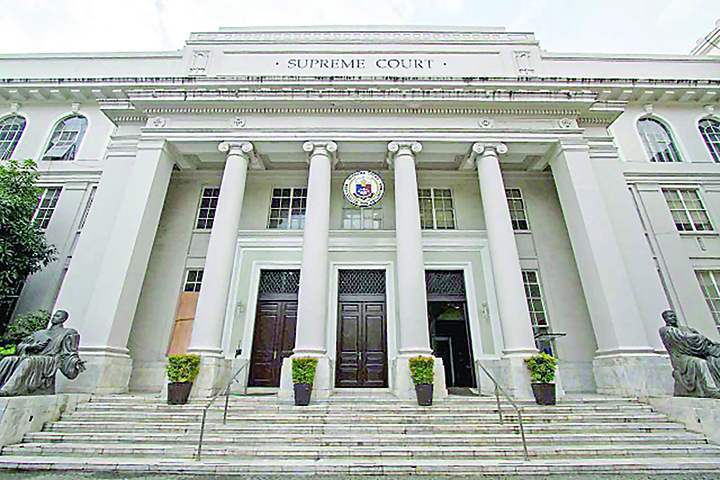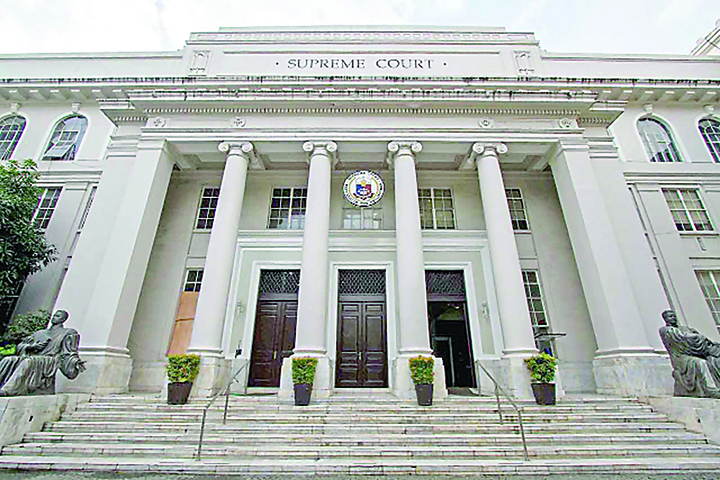
THE Supreme Court has declared illegal the implementation by the Bureau of Customs (BOC) of a memorandum order that prohibits the importation of right-hand drive (RHD) vehicles into the Subic Bay Freeport Zone (SBFZ).
In a 10-page resolution, the Court’s Second Division denied the petition for review filed by the BOC seeking the reversal of the order issued by the Regional Trial Court of Olongapo City on July 28, 2016, which declared as “invalid and without any legal effect” Customs Memorandum Order 16-2005 within the Subic Special Economic Zone.
The trial court’s decision stemmed from the petition for declaratory relief filed by Japanese 4×4 Export Corporation, a domestic firm engaged in the business of admission of vehicles, trucks, heavy equipment for industrial and agricultural use, and other related materials.
The petitioner argued that the SBFZ is considered as a separate Customs territory under Republic Act 7227 or the Bases Conversion and Development Act of 1992.
Pursuant to the law, Japanese 4 x 4 claimed that the BOC has no authority to restrict the free flow of goods in the SBFZ.
After the petition was granted by the trial court, the BOC elevated the case before the SC through a petition for review, arguing that the petitioner was no longer entitled for a declaratory relief since it had already committed a violation of the order prior to its filing since some of the vehicles or trucks brought in by it were right-handed vehicles.
In denying the BOC’s petition, the Court noted that the status of SBFZ as a separate customs territory has long been settled when then President Gloria Macapagal-Arroyo signed Executive Order 156 prohibiting the importation of used motor vehicles into the country, inclusive of the free port zone, to prevent the further decline of sales in the local motor vehicle industry.
The Court noted that despite its laudable objectives, it declared EO 156 as void for being ultra vires (beyond the scope) and for being unreasonable.
It also noted the intention of lawmakers in crafting RA 7227, which was to exempt SBFZ from the State’s territory and treat it as a foreign territory for purposes of customs laws.
This means, according to the Court, the goods received at the free port are not subject to the customs jurisdiction of the country.
“The implementation of CMO No. 16-2005 inside the freeport area is akin to imposing an additional condition or amendm ent in the contract entered into by Japanese 4 x 4 as a registered Subic Bay Freeport Zone Enterprise authorized by the SBMA [Subic Bay Metropolitan Authority]. This act is an intrusion upon the powers granted to the SBMA under Section 13[6][2] of RA 7227, which allows it to accept any local or foreign investment, business or enterprise, subject only to such rules and regulations to be promulgated by the SBMA,” the SC ruled.
It held that CMO 16-2005 is ultra vires as it went beyond the scope of its enabling law, RA 8506 (An Act Banning the Registration and Operation of Vehicles with Right-Hand Steering Wheel in any Private or Public Street, Road or Highway).
“Here, Japanese 4×4 does not import or cause the importation of goods into the customs territory of the Philippines. The goods received by Japanese 4 x 4 via the free port do not constitute importation because it is as if the goods landed into a foreign territory. Since the shipment took place from one foreign territory to another foreign territory, the BOC cannot validly assert its authority over the transaction,” the SC explained.
Furthermore, the Court said the implementation of CMO 16-2005 inside the free port is invalid for being unreasonable “as it does not serve the primordial purpose of the importation ban.”
“Our lawmakers have their reasons and purposes in designating the Subic Bay Freeport Zone as a separate customs entity and in granting privileges and incentives to the enterprises registered with the SBMA. Mainly, their aim is to develop the Subic Bay Freeport Zone into a self-sustaining entity that will generate employment and attract foreign and local investment,” the SC declared.
“To this end, the Court will keep the statute’s intent of carving a territory out of the former military reservation in Subic Bay where free flow of goods and capital will always be maintained,” it added.

